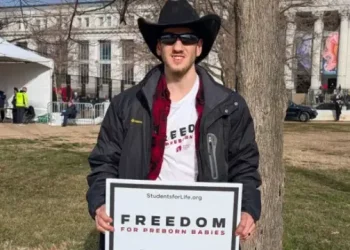To be clear, Tim Walz didn’t exactly say he wouldn’t help his mother buy groceries, but my headline makes a point: Democrats tend to believe that social responsibilities should be the government’s job.
Originally, the social insurance system wasn’t meant to replace family and church assistance for those in need; it was designed as a safety net to ensure that those without support wouldn’t fall through the cracks. Government intervention was supposed to ensure no one starved or was abandoned.
Civilized societies don’t view people as disposable, and smart societies recognize that government assistance should supplement, not replace, the love and community that sustain individuals.
Tim Walz’s comments about his mother are revealing in this context. If we take him at his word, it sounds like his mother would starve without her Social Security check. That says more about Tim Walz than it does about Social Security or government programs. If it were literally true, it would suggest that Walz himself is neglecting his mother.
But, of course, it’s not literally true. In a country like the United States, it’s difficult to be food insecure without underlying dysfunction. The real message behind Walz’s comment is that he believes the government should be the primary caretaker for everyone, including his mother. He seems to think that caring for loved ones is something to be outsourced to the state.
This is a long-standing ideology of welfare statists, rooted in Marxist thought, where the state replaces the family. The idea is that it shouldn’t be the parents who raise children or the children who care for aging parents—it’s the job of the government. “It takes a village,” as the saying goes, but in practice, that village becomes the state.
This philosophy has led to the erosion of family ties, where childcare centers replace parents, schools take over moral teaching, and social workers determine a child’s gender identity. Walz has supported policies here in Minnesota that allow children to distance themselves from their parents on issues like gender transitions, promoting the idea of a “trans sanctuary” state, where the government replaces parents in making decisions for children.
No doubt Tim Walz loves his mother and wouldn’t let her starve, but his comments send a clear message: the state over family. He assumes people will sympathize with the idea that the government is responsible for his mother’s well-being, instead of being shocked at the notion that she’d be left to suffer without a government check.
Social Security is here to stay, and as someone who has paid into it for decades, I expect my return. But the idea that Walz would describe his mother as nearly destitute without government help is troubling. He’s a governor, a candidate for higher office, and a lifelong government employee.
Couldn’t he just help his mother out if she needed groceries?
It seems that question never crossed his mind.
 Telegram is where we really talk. Don't miss out!
Telegram is where we really talk. Don't miss out!








